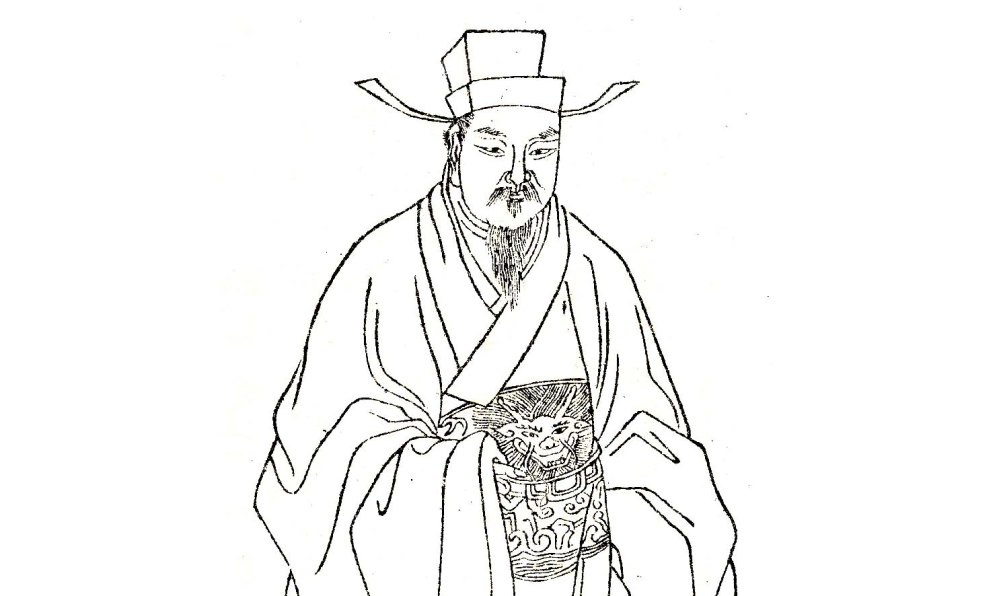Zhang Jiuling composed 4 Thoughts that were incorporated in the Book of 300 Tang Poems. Gentle reader, I give you two translation of Zhang Jiuling’s Thoughts 3:
Thoughts 3 – Zhang Jiuling
Alone in his abode, a quiet man, cleansed of care, composes his thoughts,
And projects them to the soaring goose, because it will bear his feeling.
Day and night, I conceive this empty prayer
Flying and falling, it is comfort enough that I am honest
Or something more poetic …
One man alone
Composes his thoughts, cleansed of care,
Then he projects them to the highest goose
To his distant Lord to bear.
Who will be moved by my sincerity,
By my daily prayer?
What comfort for my loyalty and honesty
When birds and the vile low-life are compared?
Heed my warning, execute An Lushan
Some scholars reckon that this poem was written in 738 AD, two years before Zhang Jiuling died. If so, gentle reader, then these words have flown 1,280 years in time to you. Zhang could not have known that you would be reading his words. What poet does?
Alone in their rooms, alone with their thoughts, why do poets write?
When Zhang wrote these words, his career had soared high then crashed, flew then fell.
At the peak of his career, three years earlier, in 735, he was given the honorific title Jinzi Guanglu Daifu (金紫光祿大夫), the emperor’s close minister, and created the Count of Shixing. His nickname was Bowu (博物) meaning broadly knowledgeable and erudite. But nothing lasts forever, and success breeds jealousy and others plot.
One year before writing the poem, Zhang advised Emperor Xuanzong to execute General An Lushan for failing to follow orders. Zhang’s honesty cost him political favor, the Emperor disagreed, and Zhang was demoted and would die soon thereafter while visiting the tomb of his parents.
If the Emperor had only listened to the honest words of Zhang. General An Lushan, of course, is the one individual responsible for the devastating rebellion that would cover the years 755 to 763. Zhang’s foresight would have save the Tang dynasty form millions of deaths, famine and disorder.
In the midst of the rebellion, the emperor’s son, the new Emperor Suzong, would recall Zhang’s warning and issue an edict honoring his father’s old counselor.
Original Chinese
幽人归独卧, 滞虑洗孤清
持此谢高鸟, 因之传远情
日夕怀空意, 人谁感至精
飞沈理自隔, 何所慰吾诚
Pinyin
Yōu rén guī dú wò, zhì lǜ xǐ gū qīng,
chí cǐ xiè gāo niǎo, yīn zhī chuán yuǎn qíng.
Rìxī huái kōng yì, rén shéi gǎn zhì jīng
fēi chén lǐ zì gé, hé suǒ wèi wú chéng
Notes
As always, I am the first to say that there may be errors in my translation. A broad understanding of language, history, and culture are necessary to achieve a modicum of success.
Line one, 幽人, is often translated as “hermit” but I think solitary man is more accurate. Clearly, Zhang is writing this poem, having been demoted for being honest, and expressing his personal feelings.
Line two, 高鸟, high bird, is sometimes translated as wild goose. Here, it is likely a metaphor for the emperor who soars high above his subjects. One could substitute a wild goose, but that matter, it could be an eagle or a crane, both of which achieve high altitudes in flight.
Line three, 日夕, day and night. “Always” works too.
Line three, second stanza, I admit taking some liberties with the Chinese characters. Google says, “People who feel the essence,” but that seems to me an interpretation lost in translation.
Line four, 飞沈, to fly and fall, is a bit confusing. 飞沈, Perhaps it is a simple as to rise and fall in one’s career. What compares to the thrill of the bird in flight, rising and falling? 飞沈理自隔, 何所慰吾诚,
I need to give this final thought more thought.

感遇十二首·其二
张九龄 〔唐代〕
幽人归独卧,滞虑洗孤清。
持此谢高鸟,因之传远情。
日夕怀空意,人谁感至精?
飞沉理自隔,何所慰吾诚?
译文及注释
译文
归隐到这幽静的山林以来,每天都独自高卧在林泉之下,积聚的愁虑被洗涤得干干净净。
我想拿这些来感谢那高飞的鸟儿,因要托她传达我这遥远的情怀。
日日夜夜我空怀着这无限情意,可是又有谁能体会到我至诚的情意呢?
那飞鸟和沉鱼本来就情趣相隔,又怎么能慰解我的心怀情意?
注释
高鸟:高飞的鸟。
飞沉:指鸟和鱼。
赏析
这是一种修行境界在打坐中感受到淡泊明智、宁静致远。这种心如虚空唯一至精的感受谁能知道呢?对自己还没有达道的功夫的谦虚还是经常有一点心乱,想更上一个境界一念不生是谓诚。
appreciation
This is a realm of practice. In meditation, one feels indifferent, wise, quiet and farsighted. Who can know the unique and refined feeling of the mind like emptiness? I am always a little upset about my modesty of kung fu that has not yet reached the Tao. It is called honesty to want to go to a higher level without any thought.












